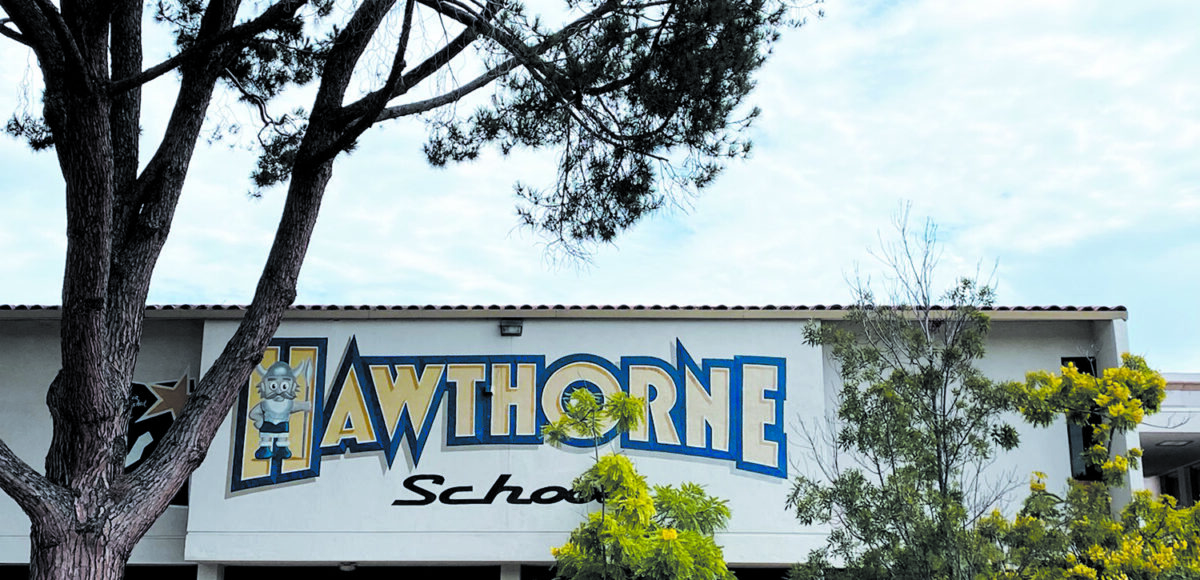The Beverly Hills Unified School District Board of Education on Sept. 10 unanimously approved the 2024-25 Strategic Plan, roughly two weeks after staff reviewed a draft version of the plan at an earlier board meeting.
Though the board members were unified in their vote, Board Member Judy Manouchehri raised some concerns about how the district communicates academic performance to parents and families, touching off a wide-ranging discussion about parental participation and the district’s plans for the coming year.
Manouchehri said that after reviewing elementary students’ academic performance over the past few years, she was concerned that she hadn’t previously known the percentage of students lagging behind state math standards.
“The progress monitoring is a little bit beefed up as compared to last year, but not that much,” Manouchehri said. “There is a missing component here, and that is the communication and the partnership at home.”
While Horace Mann Elementary School administers i-Ready Diagnostic tests—which measure learning progress—three times a year, it is unclear if the results of those tests are shared with parents, Manouchehri said.
Dr. Dustin Seemann, Assistant Superintendent, Education Services, said the results from these tests and others are reviewed routinely at public study sessions, and he invited parents to involve themselves in this process.
“If your kid scored a two on the [California Assessment of Student Performance and Progress] exam, we are [an] open door,” Seemann said. “Let’s sit and talk and create an individualized plan.”
Board President Dr. Amanda Stern said that at “parent universities” and other events meant to involve parents in their children’s education, the parents who show up are already active in their child’s education, and Manouchehri added that it can be hard for parents to make the time on a school night.
Board Member Noah Margo said the board has for many years emphasized measurable goals when drafting the strategic plan, and “what’s going on in the house … is not measurable.”
“The reason that component was never really put in a strategic plan before is because we can’t measure it,” he added. “And if we can’t measure it and have data, we can’t act on it.”
Student Board Member Remy Javidzad agreed that it is crucial for parents to be aware of their children’s scores and overall performance, and he supported ideas like creating a sign-off sheet showing that students are discussing these things with their parents.
However, whatever new policies the board might implement, it will take time before these are reflected in students’ test scores, Javidzad added.
“The scores are not going to … jump to everyone meeting or exceeding our standards,” he said.
During the Sept. 10 meeting the board also voted to approve several contracts for programs and facilities, including upgrades to the Horace Mann Elementary School restrooms and parking lot totaling more than $34,000 and a renewal of a $22,000 subscription to Zoom.
Before voting to approve the Zoom subscription, Manouchehri asked how widely the district uses Zoom, and Bregy said that it has been hugely beneficial. When Stern suggested the district consider Google Meets as an alternative, Bregy said that using the software during the COVID-19 pandemic made it difficult for families to access online programs, and the board voted unanimously in favor of renewing the subscription.
The board also planned to vote on a resolution supporting Proposition 2, a $10 billion bond on the ballot in the November general election to fund infrastructure improvements at public schools across California.
Some of the board members disagreed on the financial ramifications this could have for the city, and they agreed to continue the vote until the next board meeting so they could take a closer look at the details.







